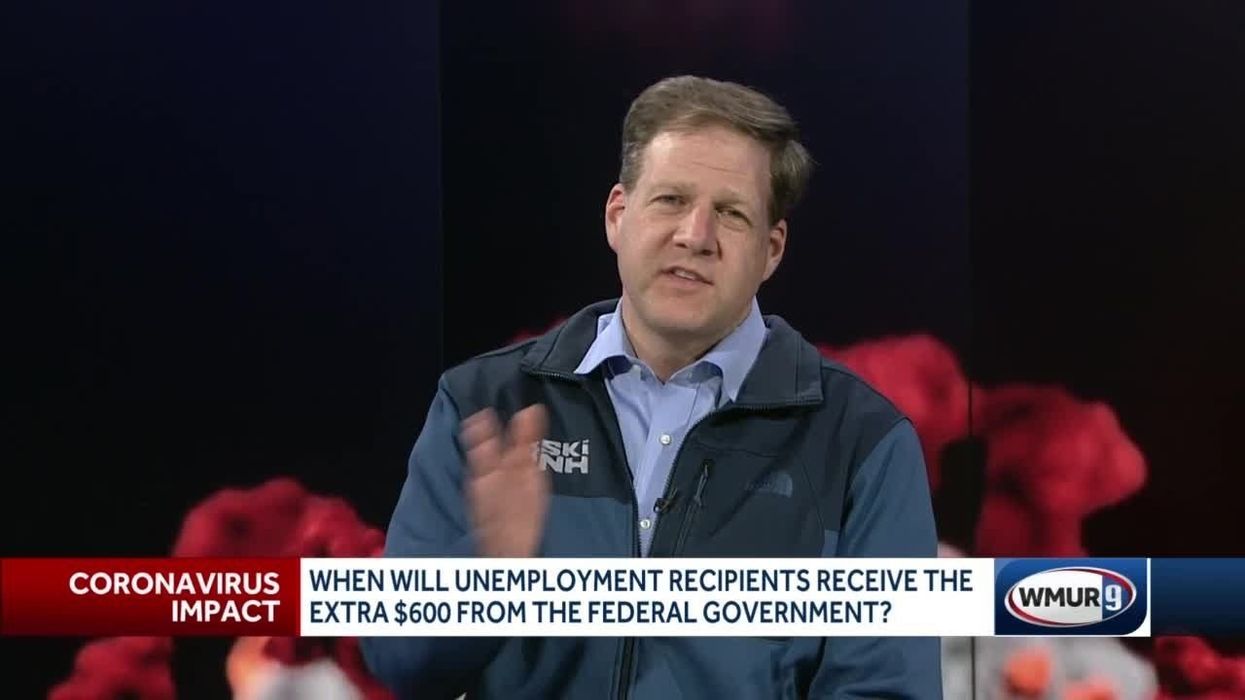Voting rights advocates have scored back-to-back victories in New Hampshire, the smallest but among the hardest fought of the presidential battleground states.
Gov. Chris Sununu, breaking from the resistance of many of his fellow Republican leaders nationwide, announced Thursday the state will give voters open-ended permission to vote by mail in November if the coronavirus pandemic has not abated.
Hours later a judge struck down a state law toughening requirements for signing up to vote — especially for the state's large, pivotal and liberal-leaning collegiate electorate.
The decision in the registration case is sure to be appealed. But the governor sounded firm in his decision abandoning his past opposition to widespread absentee voting.
"Basically if you feel more comfortable voting absentee because of the outbreak, or your inability or nervousness about just appearing in person to vote, you can vote absentee and obtain an absentee ballot," he said at a news conference.
Just seven states require all applicants for absentee ballots to cite an excuse preventing them from voting in person on Election Day. New Hampshire is the only swing state on the roster, and the only permissible excuses are religious, work or travel obligations — not illness or public safety. It was unclear how the governor's declaration would be carried out.
Sununu said officials in Concord are considering other ways to make voting easier and less subject to health risks this year, among them systems for completing ballots from inside a car at drive-through voting sites.
Good governance groups have rallied behind Democratic efforts in Congress to authorize no-excuse absentee voting nationwide this fall, saying that's the best way to assure full turnout no matter the state of the public health emergency.
Republicans have resisted such a mandate and have been vociferously backed by President Trump, who has asserted without evidence that widespread fraud comes with widespread voting by mail, making Sununu's break from his party's position all the more notable.
And just last year, he vetoed a measure passed by the Democratic-majority Legislature that would have permitted the sort of no-excuse absentee voting available in 27 states.
New Hampshire's four electoral votes have been closely contested in most elections for the past three decades. Hillary Clinton carried them in 2016 by 2,700 votes, the second-narrowest presidential margin of any state, and that year's Senate race was the closest in the country, won by just 1,017 votes by Democrat Maggie Hassan.
After Trump asserted without evidence that fraud denied him victory in the state, a Legislature then in Republican hands added several complex steps to the voter registration process and set criminal penalties and civil fines for those who did not produce certain proof-of-residence documents.
The state Democratic Party and the League of Women Voters sued, arguing the new rules were confusing and created an impermissible two-tier system by adding extra requirements for students and people signing up within a month of an election or on Election Day
Superior Court Judge David Anderson agreed. He declared the statute "unconstitutional," "discriminatory" and "unreasonable" and said its implementation would suppress turnout, especially by younger and poorer people, without deterring the minimal amount of fraud in the state over the past two decades — which both sides in the case agreed to at trial.
The law falls "disproportionately on groups of individuals who use same-day registration more frequently than others," he wrote. "Young, mobile, low-income and homeless voters will all encounter SB 3 and be exposed to its penalties at a higher rate than other voters."
Solicitor General Daniel Will vowed an appeal to the state Supreme Court.
Litigation continues over a second law enacted in 2017 that limited access to the ballot box. It requires having a New Hampshire driver's license and registering cars in the state in order to vote, which civil rights groups and lawyers for out-of-state students deride as a de facto poll tax designed to suppress the mostly Democratic vote on college campuses.




















